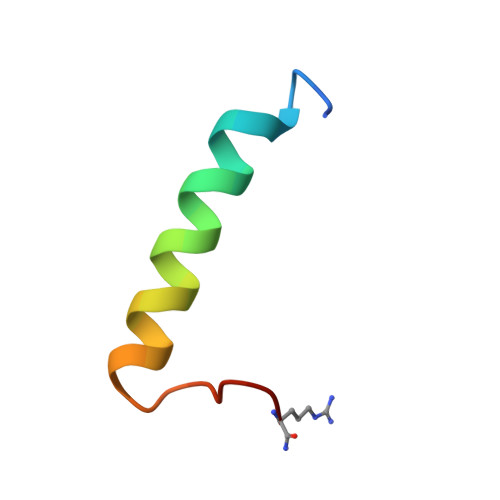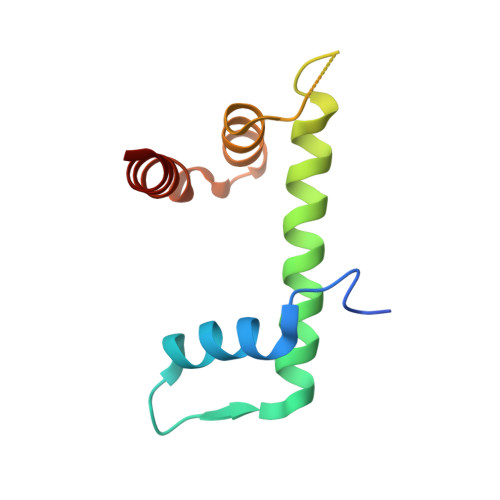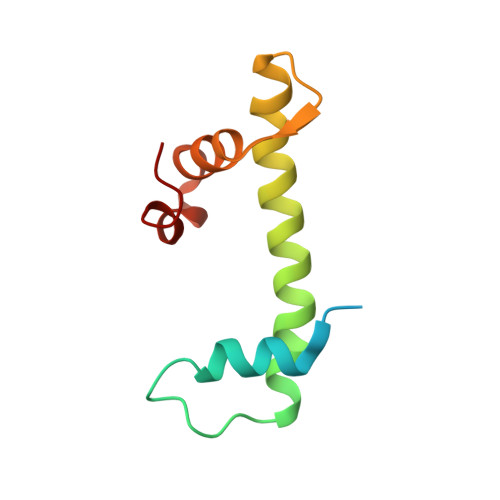Constrained Peptides with Fine-Tuned Flexibility Inhibit NF-Y Transcription Factor Assembly.
Jeganathan, S., Wendt, M., Kiehstaller, S., Brancaccio, D., Kuepper, A., Pospiech, N., Carotenuto, A., Novellino, E., Hennig, S., Grossmann, T.N.(2019) Angew Chem Int Ed Engl 58: 17351-17358
- PubMed: 31539186
- DOI: https://doi.org/10.1002/anie.201907901
- Primary Citation of Related Structures:
6QMP, 6QMQ, 6QMS - PubMed Abstract:
Protein complex formation depends on the interplay between preorganization and flexibility of the binding epitopes involved. The design of epitope mimetics typically focuses on stabilizing a particular bioactive conformation, often without considering conformational dynamics, which limits the potential of peptidomimetics against challenging targets such as transcription factors. We developed a peptide-derived inhibitor of the NF-Y transcription factor by first constraining the conformation of an epitope through hydrocarbon stapling and then fine-tuning its flexibility. In the initial set of constrained peptides, a single non-interacting α-methyl group was observed to have a detrimental effect on complex stability. Biophysical characterization revealed how this methyl group affects the conformation of the peptide in its bound state. Adaption of the methylation pattern resulted in a peptide that inhibits transcription factor assembly and subsequent recruitment to the target DNA.
- Chemical Genomics Centre of the Max Planck Society, Otto-Hahn-Strasse 15, 44227, Dortmund, Germany.
Organizational Affiliation:


















